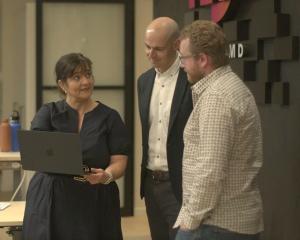
The awards were given out by the Women’s Empowerment Principles New Zealand which was established by UN Women and the UN Global Compact Office.
The awards celebrated organisations taking positive steps to ensure workplaces were fair, equal and offered the opportunity for all to succeed, as well as acknowledging organisations that had made progress in implementing the seven Women’s Empowerment Principles.
Those principles were: establish high-level corporate leadership for gender equality; treat all women and men fairly at work — respect and support human rights and non-discrimination; ensure the health, safety and wellbeing of all women and men workers; promote education, training and professional development for women; implement enterprise development, supply chain and marketing practices that empower women; promote equality through community initiatives and advocacy; and measure and publicly report on progress to achieve gender equality.
Firebrand founder Bex Twemlow said the award was ‘‘massive recognition for all small businesses with wahine at the heart and soul of their very being.’’
‘‘I knew Firebrand was special and I knew our modern, progressive and fierce female focus was the right thing to do and, to be recognised by WEPS for this, just strengthens the resolve even more.
‘‘We are a stronger organisation, capable of doing great things for all people because we treat people fairly and with no discrimination of any ilk condoned,’’ Mrs Twemlow said.
The journey to continue to further incorporate the seven principles of WEPS throughout Firebrand, their lives and their community was never finished, she said.
Mrs Twemlow said all businesses should be able to apply for the awards if they were running an organisation with fairness, kindness and taking care of people at the heart of their business.
Nobody was ever at 100% but providing equal opportunities and non-discrimination were fairly simple to achieve, as was creating a healthy and safe environment free from violence and discrimination.
There was a real need for organisations like Firebrand to ensure their messaging was appropriate and inclusive — ‘‘and feels like 2022, not 1984’’ — and represent what their community looked like.
Now 12, Firebrand was in a position now that it could choose not to work on certain projects that did not align with its values.
Mrs Twemlow worked hard on community leadership and engagement, saying young people ‘‘coming through the ranks’’ needed to see there was a place for them. Early on her career path, it felt there was nowhere for her but she had a personality that enabled her to make a space at the table.
There was no difficulty recruiting talent to work at Firebrand; at the moment, she was struggling to choose interns. She interviewed 60 people several weeks ago for four intern positions and was now trying to work out how to bring on another two.












